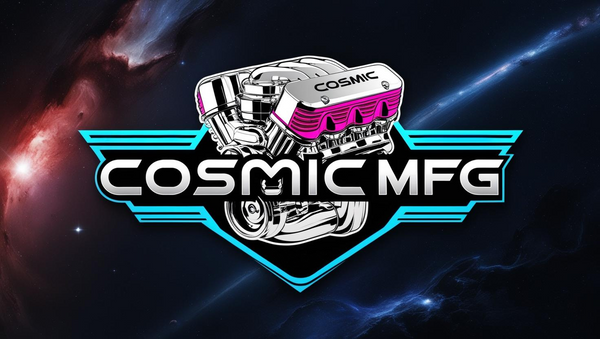Range Rover LS Swap Info
Cosmic MFG is a small specialty automotive product design and fabrication operation focusing on Range Rover and BMW LS engine swap components. From LS engine mounts, transmission crossmembers, custom headers, custom intakes, radiators and more. Each product is designed with optimal performance and fitment in mind. Our Range Rover and BMW LS swap kit components are always a direct bolt in to the factory chassis and require no cutting or drilling.
Do you have a BMW E38/E39 or Range Rover L320 or L322 in need of an engine replacement? We specialize in adapting the LS engine platform into your vehicle to take the guess work and labor out of of the equation for you.
The L320 and L322 Range Rover Sport and Range Rover HSE are beautiful vehicles, however as they have aged it has become apparent that the drivetrains certainly have their share of issues commonly resulting in catastrophic engine failure. Replacing with another factory engine is a gamble and extremely expensive, often north of $15-20,000.
The Range Rover Sport L320 (produced from 2005 to 2013) is known for a range of engine-related issues, depending on the engine variant (e.g., TDV6, TDV8, Supercharged V8). Here’s a breakdown of the most common engine problems across the L320 lineup:
🛠️ Common L320 Engine Problems by Engine Type
1. 2.7L TDV6 (Diesel) – Early Models (2005–2009)
-
Crankshaft Failure
-
Sudden and catastrophic; usually no warning. Once it fails, full engine replacement is often needed.
-
-
EGR Valve Problems
-
Common due to soot buildup, causing rough idle, limp mode, or poor fuel economy.
-
-
Turbocharger Failures
-
Turbos can fail due to oil starvation or carbon buildup.
-
-
Timing Belt Issues
-
Timing belt service is critical at ~105,000 miles (or sooner); neglect can lead to engine damage.
-
2. 3.0L TDV6 (Diesel, twin-turbo) – Later Models (2009–2013)
-
Crankshaft and Bearing Wear
-
Just like the 2.7L, crank failures are still common, especially if oil change intervals are extended.
-
-
Injector Seal Failure
-
Causes diesel smell and rough running; often leads to carbon buildup around the injectors.
-
-
Oil Pump Weakness
-
The oil pump can crack or underperform, starving the engine of oil and leading to major damage.
-
3. 3.6L TDV8 (Diesel)
-
Turbo Failures
-
Twin-turbo layout is complex and can be expensive to repair.
-
-
Injector & Glow Plug Issues
-
Common in high-mileage examples.
-
-
Oil Leaks
-
From turbo oil return lines, rocker cover gaskets.
-
4. 4.2L Supercharged V8 (Petrol)
-
Timing Chain Tensioner Failure
-
Leads to chain rattle on startup, and if left unchecked, catastrophic engine damage.
-
-
Cooling System Weak Points
-
Radiators, water pumps, and plastic connectors can fail, causing overheating.
-
-
Oil Leaks
-
Common from valve cover gaskets and oil filter housing.
-
5. 5.0L Supercharged V8 (Later Petrol Models)
-
Timing Chain Wear
-
Same issue as 4.2L, especially noticeable with cold start rattles.
-
-
Supercharger Nose Bearing Failure
-
Causes whining noise and reduced performance.
-
-
Carbon Buildup (Direct Injection)
-
Results in rough idle and loss of performance over time.
-
⚠️ General Issues Across All Engines
-
Overheating
-
Often due to water pump or thermostat housing failure.
-
-
Poor Servicing History
-
These engines are sensitive to oil quality and regular maintenance.
-
